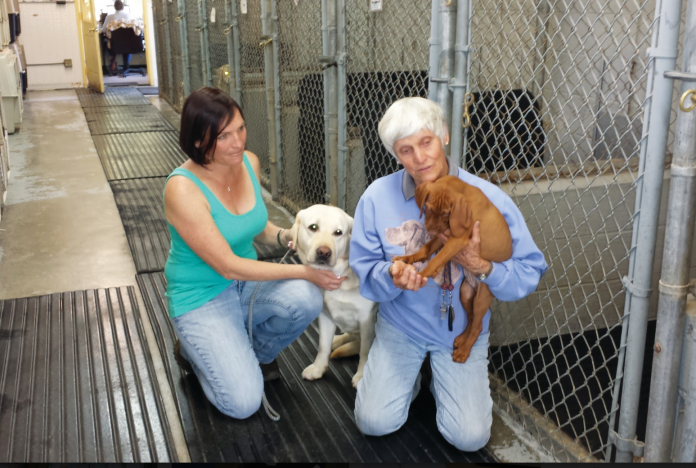
Pets and pet owners will get new protections thanks to a law passed Sept. 14. that will set standards for boarding facilities requiring them to give animals more space and have fire protection.
Specifically, the law requires that animals must have adequate space to move freely; pet enclosures must be in good repair; kennel owners must provide routine, preventive and emergency care, disease control and prevention and veterinary services; kennels must have a sprinkler system or a fire alarm system connected to the fire department; and owners must be notified immediately if a pet is injured or sick.
Authored by state Sen. Bill Monning (D-Carmel) and signed into law Sept. 14 by Gov. Jerry Brown, the law was inspired by fiery kennel tragedies in recent years in Monterey and San Luis Obispo counties that killed about two dozen pets, Monning said.
It will go into effect Jan. 1.
A San Martin kennel operator and Santa Clara County Animal Control official praised SB 945, saying it will give owners assurances that their dogs, cats and horses will receive good care and also puts teeth in enforcement by allowing increasingly tougher fines for violators.
On Tuesday, Monning said he was happy about the passage. He said it’s aimed at commercial boarding facilities and gives pet owners standards they can rely on.
Calling it “consumer protection for pets and pet owners,” Monning said the new law creates a “baseline” of protection for animals and their owners and uniform standards for boarding facilities.
At the same time, he said, it preserves local governments’ right to enact tougher standards and exempts in-home boarders who care for fewer than four animals at a time.
The latter provision will help people who board dogs through online companies such as Rover.com, which he said supported his legislation.
“The establishment of minimum standards of care at pet boarding facilities will give pet owners peace of mind when they leave their animals at these facilities and I want to thank the governor for his support of this bill,” Monning said.
His 17th Senate District includes Santa Cruz and San Luis Obispo counties along with parts of Monterey and Santa Clara counties, including Gilroy, Morgan Hill and San Martin.
Although some jurisdictions have maintained high standards for boarding facilities, that has not been the case in others and in rural counties in particular, according to the senator.
Boarding facility operators, including stables, found to be in violation of the law will first be given a notice to correct and thereafter will be guilty of an infraction and face fines of up to $250 for the first offense and up to $1,000 for subsequent violations.
Lisa Jenkins, interim program manager for Santa Clara County Animal Care and Control, welcomed the new law even though the county has for some time had its own regulations for dog and cat kennels.
“We think it’s great because this addresses a lot of concerns that people might have about leaving their pets at boarding facilities. It’s good to know there are standards in place and people have something reliable to depend on when they leave their pets, their family members, in the care of a facility,” Jenkins said.
While many parts of the new law mirror what’s already on the books in the county, Jenkins said the inclusion of boarding stables is new, as are the fines allowed by Monning’s legislation, giving animal control officials another enforcement tool.
At Operation Freedom Paws in San Martin, director of kennel operations Deb Blanchard said, “This is a great bill! One of the best I’ve seen in a very long time.”
She expressed pleasure that a bill passed “that protects the safety and welfare of animals and sets a baseline standard for care. It’s the right thing to do.
“This will benefit animals across California. Animals have no voice and can’t ask for help when something is wrong. This bill helps those that can’t speak for themselves, it gives them a voice and it gives their owners/parents some recourse if something goes wrong,” Blanchard said.














